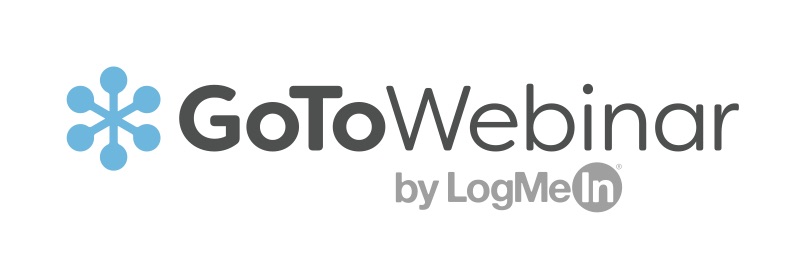If your parents (or grandparents) are anything like mine, chances are you've heard them lament how good manners have become an anachronism, no longer taught or expected. Some media outlets have even expressed the fear that good manners are in danger of dying out.
Don't miss a MarketingProfs podcast, subscribe to our free newsletter!
Manners aren't necessarily critical to survival, but they do make it possible for people to live in close proximity without constantly lashing out at one another. For some people, though, manners of any kind seem purely optional.
One might refer to these inconsiderate types as "jackasses," which is the term Scott and Alison Stratten use in their latest book, The Jackass Whisperer: How to Deal With the Worst People at Work, at Home, and Online—Even When the Jackass Is You.
Scott and Alison are co-authors of several best-selling business books, including UnBranding: 100 Branding Lessons for the Age of Disruption, UnMarketing: Stop Marketing. Start Engaging, and The Book of Business (UnAwesome). They're also co-owners of UnMarketing Inc., and co-hosts of The UnPodcast.
Formerly a music industry marketer, national sales training manager, and a professor at the Sheridan College School of Business, Scott ran his "UnAgency" for a nearly a decade before focusing on speaking about social media and marketing, at events, for companies, such as PepsiCo, Adobe, Red Cross, Cirque du Soleil, Saks Fifth Avenue, and Fidelity Investments.
I invited Scott to join me for our super-sized yearend episode of Marketing Smarts to discuss The Jackass Whisperer, and how the book, despite its light-hearted title, has valuable lessons to teach about empathy, compassion, and cooperation.
Here are just a few highlights from my conversation with Scott.
The person receiving your message doesn't always understand your intent (06:25): "A lot of the time, people don't receive intent, usually. At least, the intent we intended to give. It goes down to the basic model of communication, that thing you learned in college or high school. That basic model of communication, where there's the sender of a message, you encode it with your own things—bias, personal history, current climate conditions, mindset—and you send the message out there.
"You say something. You text something. You post something. Then there's noise in the middle. It changes it, it works around it, it could be a Facebook EdgeRank algorithm that serves it up somewhere. It could be your tone, how you say something. It could be your lack of an emoji on a text that makes it like, 'Oh, I didn't realize they were being sarcastic.' Because the receiver of the message then decodes it with their own thought of your intent.
"And that's what it comes down to. It's like driving. Somebody cuts you off, they are the worst person on this planet at that moment. And you actually, sometimes, catch up to them so you can look at them, give them 'the look,' but then also put them in the silo you want. Whatever bias you have. 'Oh, they're young. That's Millennials, they don't know how to drive.' Or 'they're old, they shouldn't be driving, why do they have a license.' 'They are male,' 'they are female,' 'they are this race.' And we never look at intent, which is usually that they simply didn't see us. We know our intent, so we just give them the wave...
"The whole point of The Jackass Whisperer was [that] we can only control our own actions and reactions and thoughts towards something. So I changed it. Now I picture that person who cut me off as my grandma. And you can never get mad at grandma! Or if you don't like your grandma, pick somebody else's grandmother. Pick one you like. 'They would never cut me off on purpose.'"
When dealing with difficult people, bear in mind that it might be you who's being difficult (10:22): "I ask audiences when we do this talk, 'Who deals with jackasses on a daily basis.' The whole audience puts their hands up. Then I say, 'OK, now who IS the jackass.' And I'm just saying, if you're all dealing with them and none of you are it, we've got a big problem here. Because we don't self-identify with jackasses.
"The book covers 125 different jackasses, with a checklist on the inside cover with 125 boxes. So you go along and you check off which ones you are... It really comes down to 'how can I make this moment better for myself and my brain. Then you start looking for the good, the right reason, the right thing. There's a little more empathy in the world."
Cultivate empathy for others, but also for yourself (15:50): "We are very hard on ourselves. And we have a 'no-win' situation that way. Everybody's out to get us, and we're not good enough. 'You'll never win.' So it's giving yourself also the benefit of intent and understanding that. Because you look at people who are working or you're trying to build your own business or you're raising a family or whatever that thing is, nobody knows what they're doing in life. We're all making it up as we go. If we realized how little everybody else knew what they were doing, we should feel much more content with where we are. It's a really hard hill to climb if we're trying to rid the world of jackassery and we don't give ourselves a break."
When someone's upset, whether it's a customer or a coworker, you can defuse a difficult situation with empathy (40:29): "When somebody's complaining at work, even that 'serial complainer' who's always complaining, looking at them and just saying 'I want you to enjoy working. I want you to enjoy your day. What can I do to make it better?' It's disarming. It stops the complaining. It stops customers from complaining. It stops co-workers from complaining. Just saying, 'Hey, what can I do?' And what you're telling them also is 'alright, enough.'"
To learn more, visit JackassWhisperer.com. You can also follow the authors on Twitter at @unmarketing and @UnAlison, and be sure to get your copy of The Jackass Whisperer: How to Deal With the Worst People at Work, At Home and Online—Even When the Jackass is You.
Scott and I talked about much more, including the worst kind of apology to make, so be sure to listen to the entire show, which you can do above, or download the mp3 and listen at your convenience. Of course, you can also subscribe to the Marketing Smarts podcast in iTunes or via RSS and never miss an episode!
This episode brought to you by GoTo Webinar. Visit mprofs.com/webinarkit to get your free kit loaded with guides and templates that will help you take your webinars to the next level!
GoToWebinar makes it easy to produce engaging online events. Whether you want to connect with your prospects, customers or employees, GoTo Webinar has the tools and analytics you need. Start creating interactive and educational webinars your audience will love.
Music credit: Noam Weinstein.
...sign up for free to continue reading
Don't miss a MarketingProfs podcast, subscribe to our free newsletter!
Published on December 12, 2019





 Scott Stratten, co-author of
Scott Stratten, co-author of 
